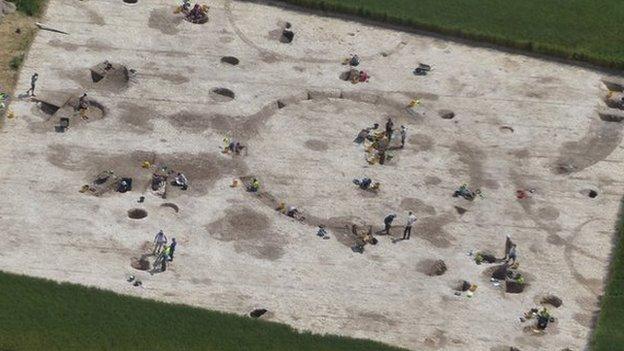Grave reveals Roman influence on drinking habits
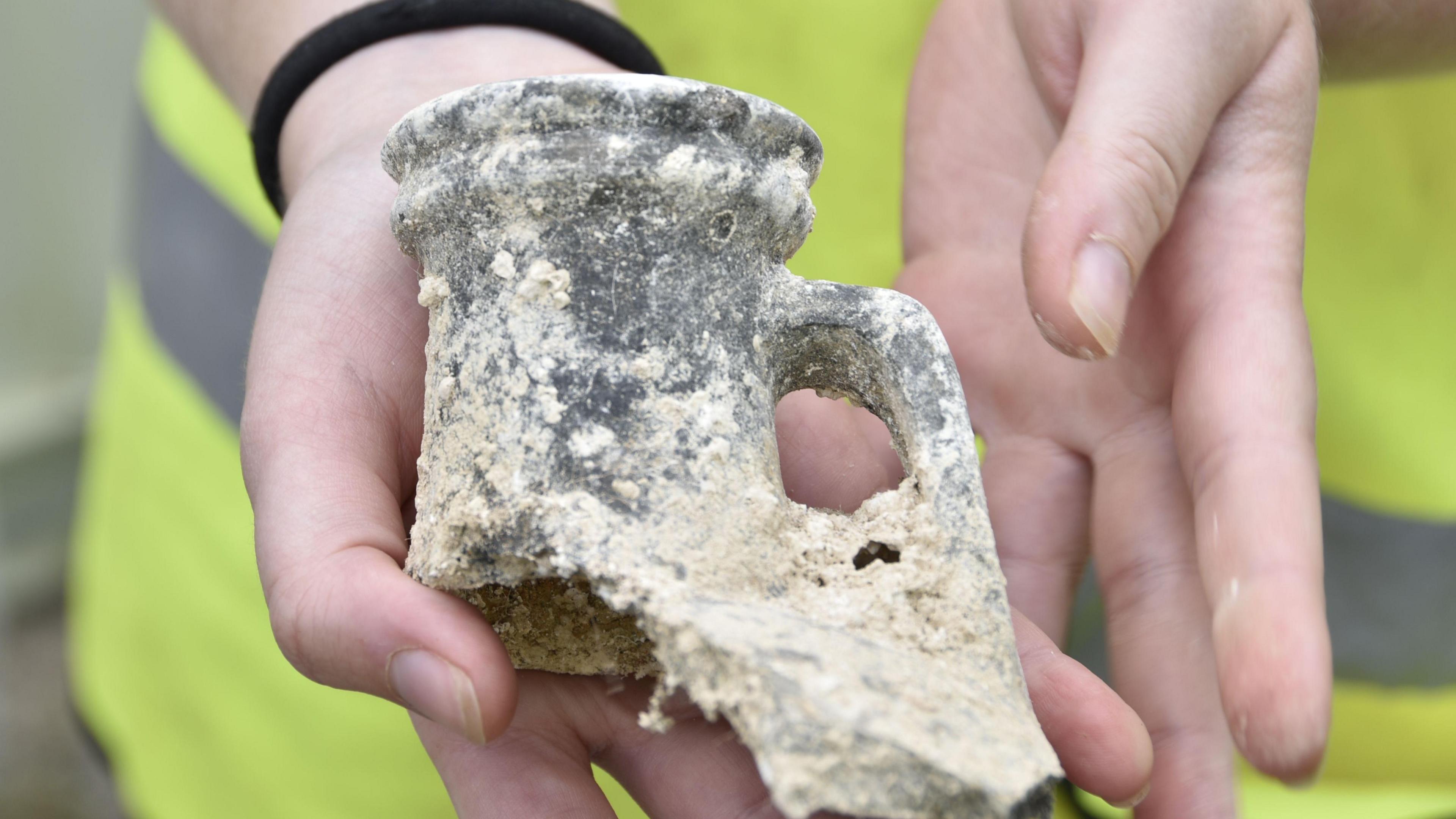
Wine cups and flagons were buried alongside two women
- Published
Grave goods found in a 2,000-year-old burial pit in Dorset have revealed how the Roman invasion changed the drinking habits of Britons.
Roman-style wine cups and flagons buried alongside two women in Winterborne Kingston suggest Mediterranean alcohol had become popular around AD 43.
The finds, by students and staff from Bournemouth University, are the first to provide evidence of life in Dorset during and after the invasion.
It is thought the cups are copies of Roman designs, made by a local potter.
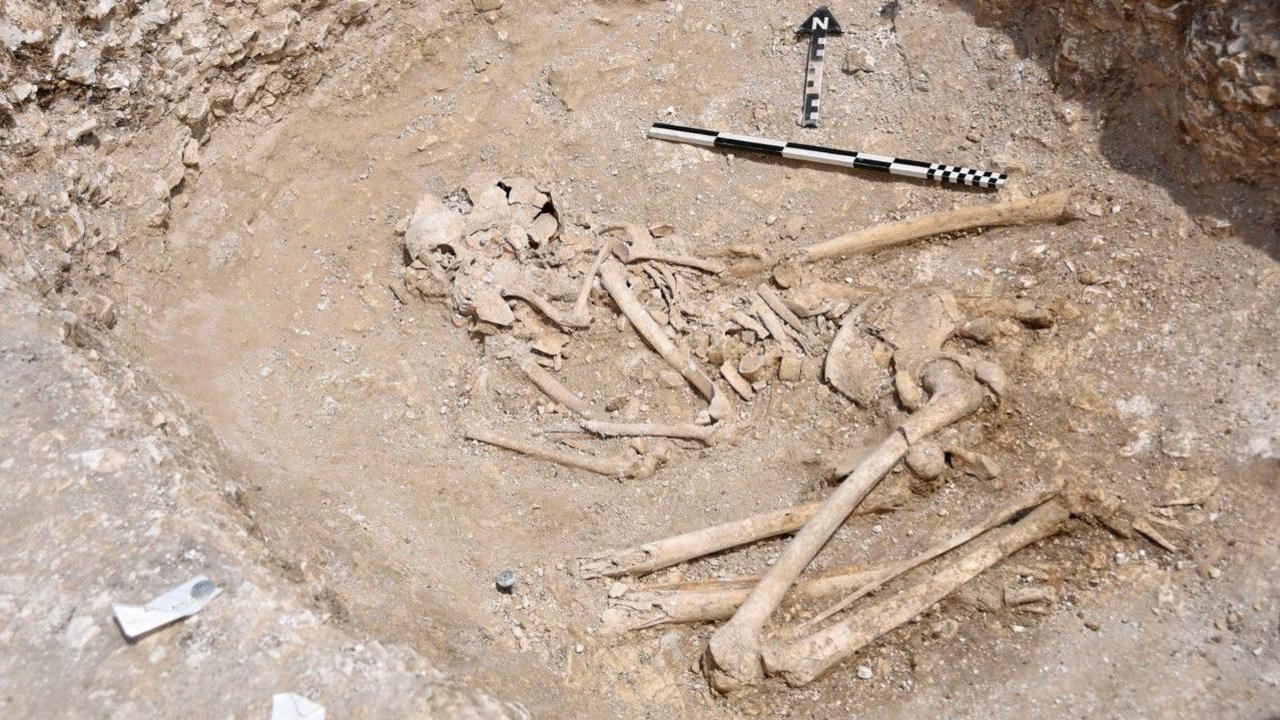
The women were buried in the traditional Iron Age way
The university has been leading excavations of Iron Age settlements at Winterborne Kingston for 15 years but previous finds had pre-dated the arrival of the Romans.
Dr Miles Russell, who is leading the dig, said: "Being incorporated into the Roman Empire was one of the biggest societal changes in British history.
"We wanted to find the farmsteads and burials that tell us what life was like for ordinary Britons, so finding a site like this was critical."
The two women were buried in the traditional Iron Age way - on their side in a foetal position - about 20 years after the arrival of the Romans.
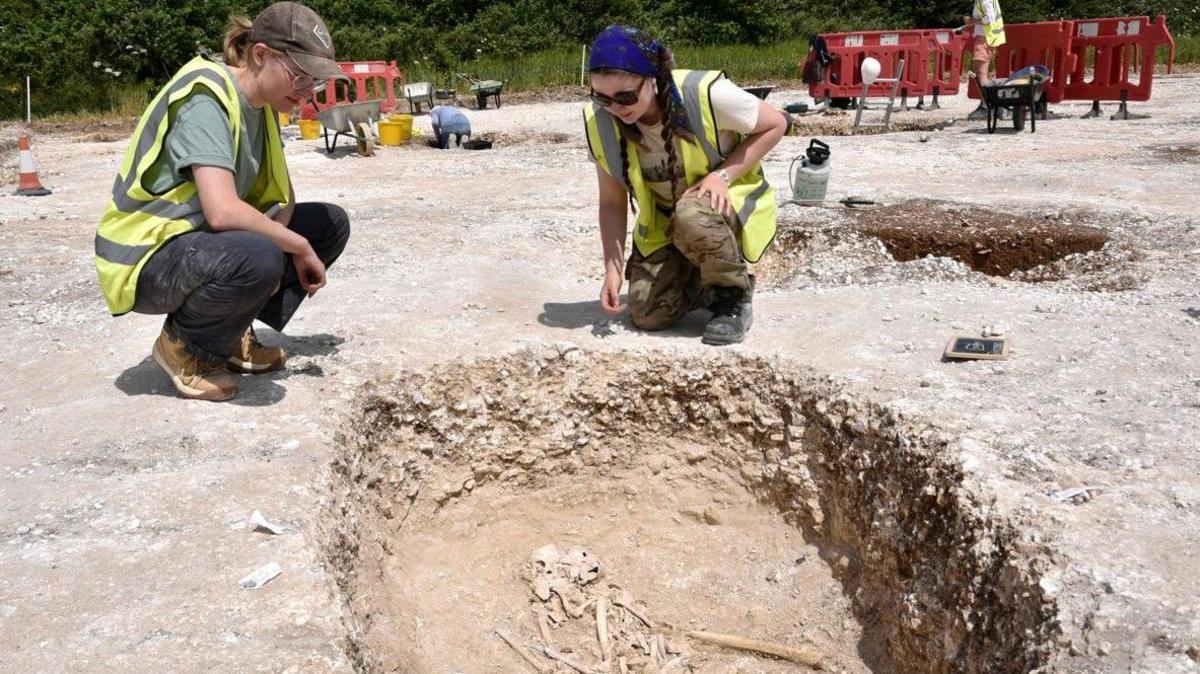
The dig will continue for another two weeks
Dr Russell said: "It’s clear that the local people are not becoming Roman in a big way, merely taking things from the Romans that enhance and improve their life, in this instance wine."
Visiting researcher and finds manager Kerry Barras said: "They are mixing their traditions, taking on some of the Roman culture and influence, but they were found by a crouched burial which is part of more regional British tribal culture."
Excavations also revealed two sacrificial dog burials and the grave of a man buried the Roman way - laying flat in a coffin.
The dig continues for another two weeks before the land is returned to farming.
The team will return next year to carry out further excavations nearby.
Follow BBC South on Facebook, external, X, external, or Instagram, external. Send your story ideas to south.newsonline@bbc.co.uk, external.
- Published15 July 2016
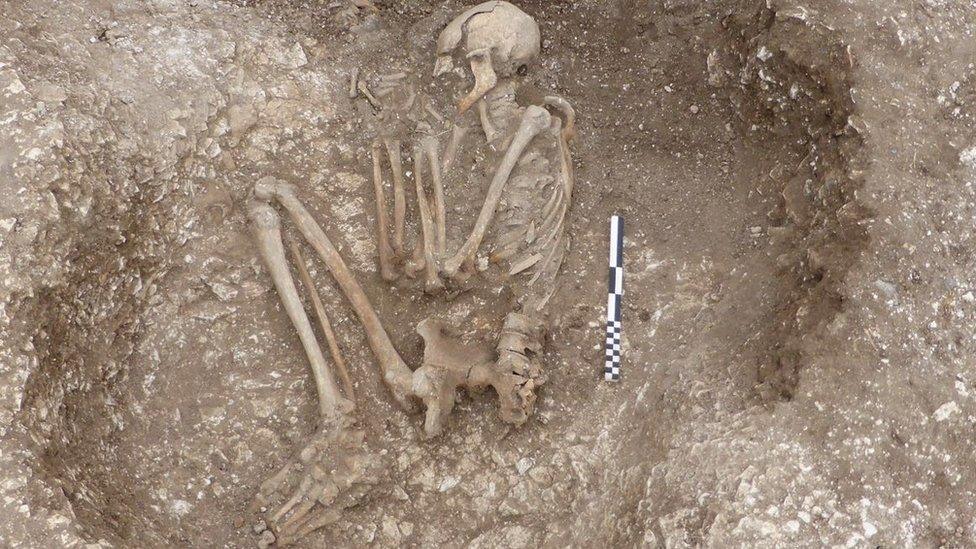
- Published11 July 2015
